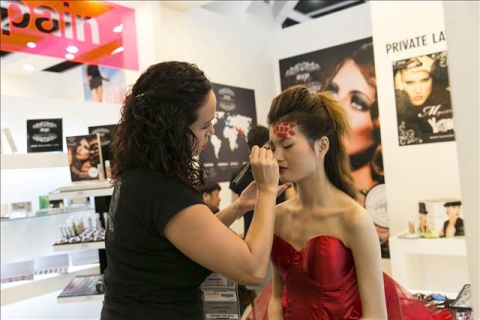UBM 2014 Full-year Revenues Dip 6 Percent: Focus on ‘Events First’ Strategy

Citing currency headwinds and lower biennial revenues in an `even' year, U.K.-based UBM reported a 2014 full-year revenue dip of 6 percent to £746.3 million ($1.15 billion) this year, compared with £793.9 million ($1.23 billion) during the same time period in 2013.
The events division was on an upswing, though, reporting 6-percent growth for the company’s annual events to £429.2 million ($663 million), compared with £424.6 ($656 million) during the same time period the year before.
Biennial events saw a 39 percent decrease in revenues last year, however, to £21.3 million ($33 million) from £38.1 million ($59 million) the prior year.
"These results represent a good performance in a year of significant strategic progress. UBM had a strong H2 and although the reported results reflect currency headwinds, the Group delivered good underlying revenue growth in both Events and PR Newswire, and solid operating margins in each of our three segments,” said Robert Gray, acting CEO for the company.
In December, UBM expanded its event portfolio significantly as part of its ‘Events First’ strategy by scooping up Advanstar Communications, which produces the MAGIC Market Week events, among several others, for $972 million.
"The acquisition of Advanstar accelerates our `Events First' strategy, which we announced in November,” Gray said.
He added, “This clear and well-defined strategy has been embraced by the business, and we have already made good progress during the first two months of 2015. The Advanstar integration is on track and trading in the first couple of months of the year has started well."
A bright spot in UBM’s events portfolio in 2014 was the shows held in emerging markets, which makes up more than 50 percent of the company’s annual events revenue.
Revenues for emerging markets-based shows in 2014 rose to £218.1 million ($337 million) last year, a nearly 9-percent increase, compared with the year before.
Events in China accounted for 35.9 percent of the emerging markets annual events revenues (Mainland 20.3 percent, Hong Kong 15.6 percent). Underlying revenue growth in China was 8.5 percent.
In addition to strong performances from UBM’s largest Chinese shows, which are in the company’s Top 20, such as CBME, Hotelex Shanghai, Cosmoprof Asia and Sign and LED China, the Istanbul Jewellery & Gem Fair also performed well.
This performance was offset by slower growth at other large shows, particularly Furniture China.
North American Events revenue rose by 2.8 percent on an underlying basis. Strong growth in our Top 20 shows (such as Black Hat, Game Developer Conference, Enterprise Connect and Cruise Shipping Miami) was offset by declines in smaller events and cancellations (notably of lower margin single sponsor custom events).
Overall North American annual events revenue dipped 7 percent last year to £105.8 million ($163 million) from £113.8 million ($176 million) in 2013.
In the UK, a strong performance from IFSEC following its relocation to Excel in London did not offset the declines at Ecobuild.
In Continental Europe, the increases reflects a good performance at CPhI WW, coupled with a very strong launch of European Jewellery & Gem Fair partially offset by the discontinuation of ATC, in Europe as well as the soft performance of a number of events serving the healthcare sector.
Continental Europe and U.K. full-year combined 2014 revenues decreased nearly nine percent.
As of Jan. 31, forward bookings for the 2014 Top 20 events are up 8.7 percent (after adjusting for the effect of foreign currency, phasing and invoice timing differences).
Unadjusted forward bookings are down 1.5 percent on a constant currency basis.


Add new comment